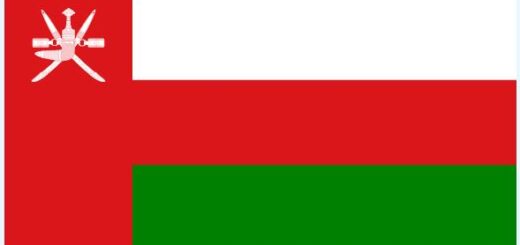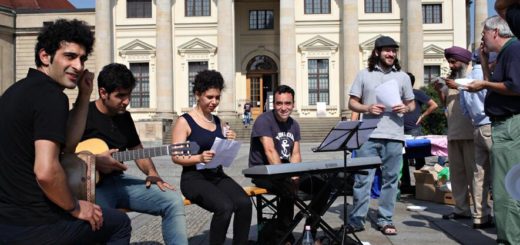Tours to Israel
Climate
Israel is located in three climatic zones. Much of Central and Northern Israel has a Mediterranean climate with hot summers and rainy winters. The Coastal Plain is hot and humid in summer but pleasant in winter, while in the mountains it is dry in summer and quite cold in winter.
In the southern and eastern regions of Israel, the climate is desert. Between the desert and the coastal region is a semi-dry zone with an intermediate climate. The best time to visit the country is autumn and spring.
Time
behind Moscow time by 1 hour.
Currency
According to Constructmaterials.com, the national currency is the new Israeli shekel. The plural in Hebrew is shkalim. Shekel is equal to 100 agorot. Banknotes are in circulation in denominations of 20, 50, 100 and 200 shekels, as well as coins in 1, 5, 10 shekels, 10 and 50 agorot. Approximate rate 1 $ = 4.4 shekels. The import of local and foreign currency into the country is unlimited. Currency exchange is carried out in banks and exchange offices, in many hotels and at the post office. Shekels can be exchanged for foreign currency at airport banks in an amount not exceeding $500 or their equivalent in another currency. Shekels in excess of the specified amount that the tourist has left after visiting Israel (no more than $ 5000) can be exchanged upon presentation of a bank receipt,
Most banks are open from Sunday to Thursday from 8.30 to 12.00 and on Sunday, Tuesday, Thursday from 16.00 to 18.00. On the eve of major Jewish holidays, banks are open from 8.30 to 12.00. Quite often, payment for purchases and services can be accepted in a freely convertible currency. Change, however, can be given in shekels. However, on the street, in transport and in the markets, you can only pay in shekels.
Tourists who purchase goods worth more than $50 in foreign currency from stores recommended by the Ministry of Tourism are eligible for less than a 5% discount on the sale price and a refund of value added tax when leaving the country. These stores are marked with a red tax.VAT refund sign against a black bag. This condition does not apply to tobacco products, electrical appliances, cameras and other photographic accessories. To get a tax refund, you must have a store receipt confirming the payment of VAT. This receipt and the purchased goods should be placed in a transparent bag and sealed with the seal of the store. Upon arrival at the airport Ben Gurion or the port of Haifa, contact the Bank Leumi office, which is located in the departures hall. The package will be opened and the tax will be returned in US dollars minus the commission.
Major types of credit cards (American Express, Diner’s Club, Visa, Mastercard/Access/Eurocard) are widely used in Israel. Holders of Visa or Mastercard/Access/Eurocard credit cards can withdraw money from the foreign exchange departments of the respective banks or from ATMs. ATMs are located almost everywhere and accept international cards.
Language
Hebrew, Arabic. Also used: English, French, Yiddish, Russian, German, Spanish.
Religion
76.5% Jewish, 10% Christian, 4.5% Druze, the remaining 9% have no religious identity.
Photographing
There are no restrictions for filming, but it is better not to photograph religious Jews on Shabbat. Saturday (Shabbat) according to Jewish traditions begins at sunset on Friday and ends at sunset on Saturday. It should be borne in mind that cameras are opened during the customs inspection, so you should not load the film in advance.
Public transport
Rail communication consists of four main routes: coastal, southern, southeastern and northeastern. The ticket is bought not for the train, but from point to point. At the same time, you can arbitrarily transfer from train to train within the paid direction. The only metro line is located in the city of Haifa and consists of only 6 stations.
Buses are the most popular form of public transport in Israel. Prices on all bus lines are affordable, buses run frequently and regularly. Tickets are purchased directly from the driver. Buses do not run on Saturdays and on Jewish holidays.
A fixed-route taxi (sherut) operates only on especially busy lines and may not perform the entire route of the corresponding bus flight. Shuttle taxis run daily, from 7-8 am until late at night. Fixed-route taxis run on Saturday, but much less frequently.
The fare in a fixed-route taxi is lower than on a bus, and the speed of movement around the city is higher. However, the prices are set so that bus tickets are more profitable. Therefore, if you need to make up to 10 trips, it makes sense to use minibuses, otherwise it is more profitable to buy a bus pass for 11 trips.
Taxi. There are local and intercity taxis. A distinctive feature of the taxi is that it operates on Saturdays. The cost of a trip within the city is determined by the meter. Taxi fare is relatively high.
There are three different rates available:
(0) – additional charge for telephone orders
(1) – regular rate
(2) – regular rate plus 25% surcharge for night service (from 21.00 to 5.30), in Saturday and holidays.
The shops
Most shops are open from Sunday to Thursday from 9:00 to 19:00. Large shopping centers are open on weekdays from 8.00 to 22.00. Shopping centers that are not exclusively for the religious population are open on Saturdays, while the rest open only at the end of the Sabbath or a holiday. Restaurants and cafes that do not serve kosher food are open mainly on Fridays and Saturdays. Muslim-owned shops are usually closed on Fridays, the Muslim day of rest, and Christian shops are closed on Sundays.
Clothing
In the period from April to October, a hot and dry season, it is enough to take light summer clothes with you, for evenings and mountains you will need a warm sweater. For excursions you need comfortable shoes. Between November and March, when the weather is rainy and cool, a coat, raincoat or jacket is required. In late autumn and early spring, the weather changes quickly, so you need to dress in a way that allows you to quickly adapt to the weather conditions. Dresses with cleavage are not accepted in Israel.
To visit government or religious structures, you must dress modestly and in closed clothes. Women must wear a headscarf and cover their shoulders and arms. This is especially true for women and means that you need to cover your hair, wear long dresses with closed sleeves. Swimwear should be taken with you even in winter for swimming in Eilat and the Dead Sea.
Tips
The standard tip amount is about 10% of the order value. Mandatory tip porter – $ 1.
Electricity
Mains voltage 220 V, frequency 50 Hz. Most sockets have three contact inputs, but they are also suitable for European electrical appliances.
Communication
is very well developed, you can call abroad from any phone, including street payphones that work with magnetic cards (telecards) purchased at post offices (cost: 10, 20, 30, 50, 120 NIS). The average cost of a call to Russia from a pay phone ranges from $0.80 to $1.20 depending on the time of day. Calls from 20.00 to 08.00 are cheaper.
Small shops have coin-operated pay phones. The tariff is per minute, the preferential tariff is valid from 20.00 to 08.00. Different telephone companies have different tariffs and sometimes very much, so you should first familiarize yourself with the prices. A call from a hotel is much more expensive than from a public pay phone.
The international country code is 972.
To call Israel, you need to dial – 8 – 10 – 972 – the area code – the number of the called subscriber.
Codes of some cities: Jerusalem – 02, Tel Aviv and Jaffa – 03, Haifa-Akko – 04, Galilee, Golan Heights and Nazareth – 06, coast south of Tel Aviv, Eilat and the Negev desert region – 08, coast north of Tel Aviv – 09.
Mobile communications
Mobile telephone communications in Israel are provided by Pelephone, Celcom, Orange and Amigo. Standard – GSM.



